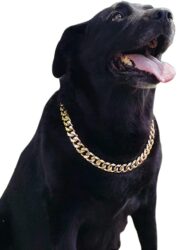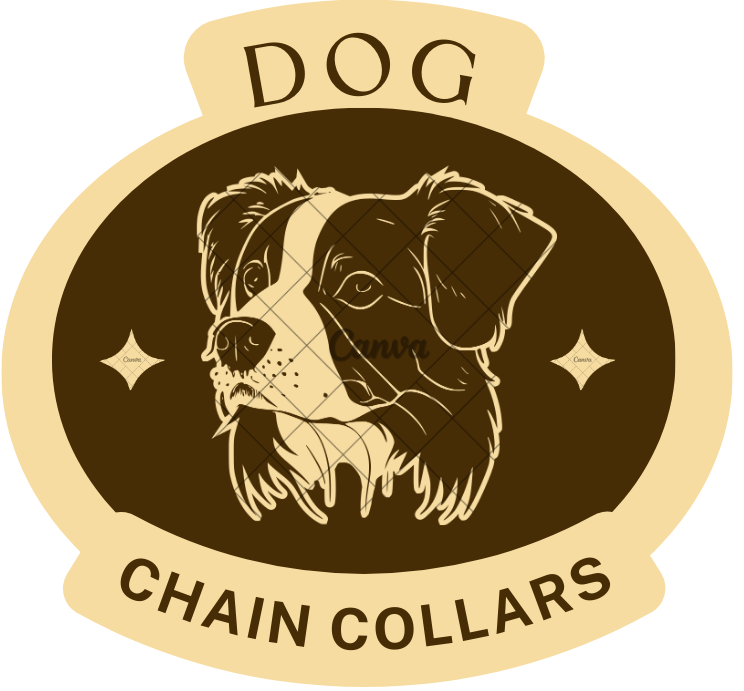Ensuring the safety and comfort of our beloved pets is a top priority for any responsible pet owner. This guide navigates the considerations involved in selecting an ideal chain or collar for a dog’s identification tags, emphasizing the importance of materials, types, size, and personalization. The safety-first approach focuses on materials such as nylon, leather, and stainless steel, each offering unique benefits. The guide delves into the choice between traditional collars and chain collars, outlining their purposes and precautions. Size considerations highlight the importance of a proper fit to avoid discomfort or injury. Lastly, the guide explores the realm of personalization and style, encouraging pet owners to express their dog’s personality through accessories. By striking a balance between safety, comfort, and style, pet owners can confidently choose a chain or collar that enhances their dog’s well-being and showcases their unique flair during every adventure. When it comes to our furry companions, their safety and comfort are paramount. One aspect of pet care that often requires thoughtful consideration is choosing the right chain or collar for their identification tags. Not only do these accessories keep vital information close at hand, but they also serve as a means of expressing your pet’s personality. In this guide, we’ll explore the various considerations when selecting a dog chain or collar, delving into the types available and the factors that make each option unique.

1. Safety First: Material Matters
When choosing a chain or collar for your dog’s tags, the material plays a crucial role in ensuring their safety and comfort. Opt for materials that are durable, non-toxic, and hypoallergenic. Common options include nylon, leather, and stainless steel, each offering a unique set of benefits.
Nylon: Lightweight and resistant to weather conditions, nylon is an excellent choice for active dogs. It’s also available in a wide range of colors and patterns, allowing for a personalized touch.
Leather: Known for its durability and classic aesthetic, leather collars are comfortable for your pet and often become more supple over time. Ensure the leather is of high quality to prevent irritation.
Stainless Steel: Chains made of stainless steel are sturdy and resistant to rust, making them suitable for dogs that spend a lot of time outdoors. They’re also a sleek and modern option for the fashion-forward pup.
2. Choosing the Right Type: Collars vs. Chains
When it comes to selecting a suitable accessory for your dog’s tags, the choice between a traditional collar and a chain collar depends on various factors.
Collars: Collars are the go-to option for most dogs, offering a comfortable and secure fit around the neck. They are available in a variety of styles, from standard buckle collars to quick-release and martingale collars, each serving a specific purpose.
Chains: Chain collars, also known as slip collars or choke chains, are designed for training purposes. However, they should be used with caution, as improper use can lead to injury. Consult with a professional trainer before opting for a chain collar to ensure it’s suitable for your dog’s training needs.
3. Size Matters: Ensuring a Proper Fit
Regardless of the material or type of collar or chain, ensuring the right size is essential. A collar that is too tight can cause discomfort and even injury, while one that is too loose may slip off. Measure your dog’s neck circumference accurately and adjust the collar or chain accordingly.
4. Personalization and Style
While safety and comfort are paramount, expressing your dog’s personality through their accessories can be enjoyable. Many collars offer the option for personalization, whether through engraved tags or detachable charms. Consider your dog’s size, fur color, and temperament when selecting a style that complements their unique characteristics.
In conclusion, choosing the right chain or collar for your dog’s tags involves a balance of safety, comfort, and style. Always prioritize materials that are safe and comfortable for your pet, and consider consulting with a professional trainer for guidance on training collars. With the right choice, your dog can wear their identification with both safety and flair, making every walk a stylish and secure adventure.
Dog chain collars can harm dogs emotionally and physically. Opt for humane alternatives like head collars and no-pull harnesses, promoting positive training experiences. Head collars provide control over a dog’s head, influencing body movements, while front clip harnesses offer effective and quick acceptance by dogs. These alternatives help avoid the negative associations and health risks associated with chain collars. For more details on their introduction and usage, click here.

